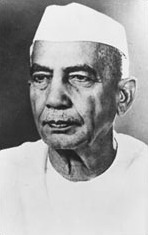
Chaudhary Charan Singh was an Indian politician and a freedom fighter. He served as the 5th Prime Minister of India and 5th Chief Minister of Uttar Pradesh.

Vishwanath Pratap Singh, shortened to V. P. Singh, was an Indian politician who was the 7th Prime Minister of India from 1989 to 1990 and the 41st Raja Bahadur of Manda. He is India's only prime minister to have been former royalty.

Haradanahalli Doddegowda Deve Gowda is an Indian politician who served as the 11th prime minister of India from 1 June 1996 to 21 April 1997. He was previously the 14th Chief Minister of Karnataka from 1994 to 1996. He presently is a Member of Parliament in the Rajya Sabha representing Karnataka. He is the national president of the Janata Dal (Secular) party. Born in a farming family, he joined the Indian National Congress party in 1953, and remained a member until 1962. He was imprisoned during the Emergency. He became President of the state unit of Janata Dal in 1994, and was considered to be a driving force in the party's victory in Karnataka. He served as the 8th Chief Minister of Karnataka from 1994 to 1996. In the 1996 general elections, no party won enough seats to form a government. When the United Front, a coalition of regional parties, formed the central government with the support of the Congress, Deve Gowda was unexpectedly chosen to head the government and was elected Prime Minister. During his tenure as prime minister, he also served as Home Minister for some time. His prime ministerial tenure lasted for less than a year. After his prime ministerial tenure, he was elected to the 12th (1998), 14th (2004), 15th, and 16th Lok Sabha, as Member of Parliament for the Hassan Lok Sabha constituency. He lost Lok Sabha elections in 2019 from Tumkuru but has been elected to Rajya Sabha since.

Janata Dal (United) (lit. 'People's Party (United)'), abbreviated as JD(U), is an Indian political party with political presence mainly in eastern and north-eastern India. JD(U) is recognised as a state party in the states of Bihar, Arunachal Pradesh and Manipur. JD(U) heads the government in Bihar under Chief Minister Nitish Kumar and is also a member of the ruling government in Manipur. JD(U) won 16 seats in the 2019 Indian general election, making it the seventh largest party in the Lok Sabha.
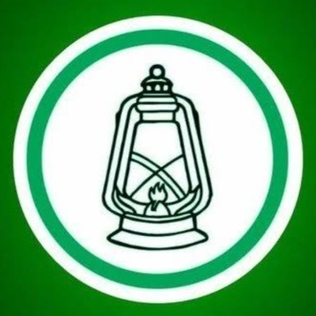
The Rashtriya Janata Dal is an Indian political party, based in the states of Bihar, Jharkhand and Kerala. The party was founded in 1997 by Lalu Prasad Yadav.

Janata Dal was an Indian political party which was formed through the merger of Janata Party factions, the Lok Dal, Indian National Congress (Jagjivan), and the Jan Morcha united on 11 October 1988 on the birth anniversary of Jayaprakash Narayan under the leadership of V. P. Singh.
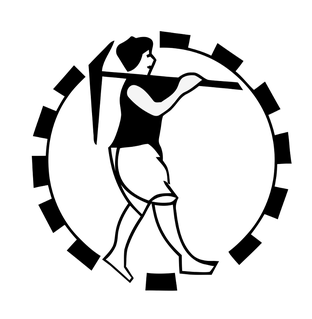
The Janata Party was a political party in India. It was founded as an amalgam of Indian political parties opposed to the Emergency that was imposed between 1975 and 1977 by Prime Minister Indira Gandhi of the Indian National Congress. In the 1977 general election, the party defeated the Congress and Janata leader Morarji Desai became the first non-Congress prime minister in independent modern India's history.

Bharatiya Lok Dal was a political party in India. The BLD or simply BL was formed at the end of 1974 through the fusion of seven parties opposed to the rule of Indira Gandhi, including the Swatantra Party, the Utkal Congress, the Bharatiya Kranti Dal, and the Samyukta Socialist Party. The leader of the BLD was Charan Singh.
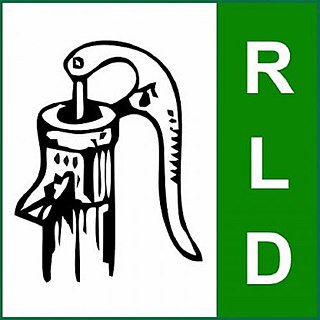
Rashtriya Lok Dal is an Indian regional political party in Uttar Pradesh and Rajasthan. It was founded by Chaudhary Ajit Singh, son of the former prime minister of India, Chaudhary Charan Singh in 1996 as a breakaway faction of the Janata Dal.

Chaudhary Ajit Singh was an Indian farmer leader and politician. He was the founder and chief of the Rashtriya Lok Dal, a political party recognised in the state of Uttar Pradesh. He was son of the former Prime Minister of India Chaudhary Charan Singh. He tested positive for COVID-19 and was subsequently admitted to a hospital in Gurugram. He died on 6 May 2021 after his condition deteriorated.

Vidya Charan Shukla was an Indian politician whose political career spanned six decades. He was predominantly a member of the Indian National Congress, but also had spells in Jan Morcha, Janata Dal, Samajwadi Janata Party (Rashtriya), Nationalist Congress Party and Bharatiya Janata Party. He was known as a close associate of Indira Gandhi.

General elections were held in India on 3 and 6 January 1980 to elect the members of the 7th Lok Sabha. The Janata Party alliance came into power in the 1977 general elections amidst public anger with the Indian National Congress (R) and the Emergency. However, its position was weak; the loose coalition barely held on to a majority with only 295 seats in the Lok Sabha and never quite had a firm grip on power. Bharatiya Lok Dal leaders Charan Singh and Jagjivan Ram, who had quit the Congress, were members of the Janata alliance but were at loggerheads with Prime Minister Morarji Desai. The tribunals the government had set up to investigate human rights abuses during the Emergency appeared vindictive.

General elections were held in India on 22 and 26 November 1989 to elect the members of the ninth Lok Sabha. The incumbent Indian National Congress (Indira) government under the premiership of Rajiv Gandhi lost its mandate, even though it was still the largest single party in the Lok Sabha. V. P. Singh, the leader of the second largest party Janata Dal was invited by the President of India to form the government. The government was formed with outside support from the Bharatiya Janata Party and Communist parties led by CPI(M). V. P. Singh was sworn in as the seventh Prime Minister of India on 2 December 1989.
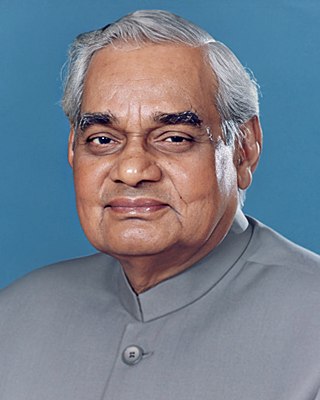
General elections were held in India on 27 April, 2 May and 7 May 1996 to elect the members of the eleventh Lok Sabha. The elections resulted in a hung parliament with no single party having a clear majority. The Bharatiya Janata Party, which had won the most seats, formed a short-lived government under Prime Minister Atal Bihari Vajpayee. However, two weeks later the United Front coalition was able to secure a parliamentary majority and H. D. Deve Gowda of Janata Dal became Prime Minister. In 1997 Inder Kumar Gujral, also from the United Front, succeeded Gowda as Prime Minister. Due to the instability, early elections were held in 1998. The elections were the first since 1980 in which every states' seats were elected in a single election period.
Bikramganj Lok Sabha constituency was a Lok Sabha (parliamentary) constituency in Bihar state in eastern India. It was abolished in 2008.

Chandra Shekhar was an Indian politician who served as the 8th Prime Minister of India, between 10 November 1990 and 21 June 1991. He headed a minority government of a breakaway faction of the Janata Dal with outside support from the Indian National Congress. He was the first Indian Prime Minister who had never held any prior government office.
In Indian politics, the Third Front refers to temporary alliances which began in 1989 among smaller parties to offer a third option to Indian voters. These alliances arose to challenge the Indian National Congress (INC) and Bharatiya Janata Party (BJP).
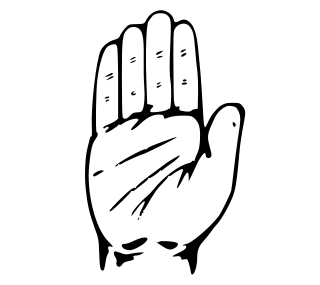
Legislative Assembly elections were held in the Indian state of West Bengal in 1996. The election took place simultaneously with the 1996 Indian general election. This was the last election Jyoti Basu contested, as he retired from politics in 2000.
Lokdal or Lok Dal is an Indian political party based on agriculture policies, founded by former prime minister of India Charan Singh. It was founded on 26 September 1979 by merging Janata Party (Secular), Socialist Party and Orissa Janata Party. Charan Singh was elected president of Lok Dal and Raj Narain, its working president.















